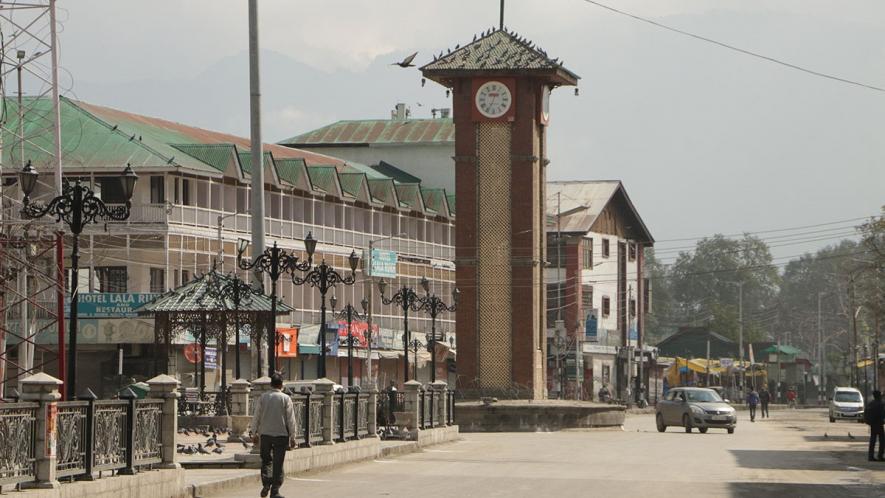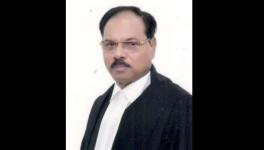In My Own Voice: Revoking Article 370 will Erase Kashmiriyat

We all know what the Bharatiya Janata Party-led majoritarian government has done - felled a death blow to Jammu & Kashmir’s special status by demolishing Article 370 and 35A. Moreover, by amputating Ladakh from Jammu & Kashmir in a single stroke – without due time being given to the elected Parliamentarians to read, discuss and strategies over the Order - a people who had a special status are now no longer a state, they have been downgraded to a mere Union Territory.
In fact the political map of India has been changed, we now do not have 29 states, only 28 and theoretically, they can do this to any state in the future, so forget about the federal structure of the Indian state, an essential feature of the Indian Constitution.
The Kashmiri leaders, Mehbooba Mufti and Omar Abdullah have been arrested along with Sajjad Lone and several others. No one can hear the protest of the Kashmiri leaders. As they are not important, only the Centre is the sole voice in power. Since the internet and communication facilities have been blocked, one cannot get through to a single Kashmiri voice.
Also read: UT Status to J&K Setback to Federal Experiment
Over 40,000 military and reserve police have been moved to the valley to control the anger of the people that is bound to erupt. The military is out to suppress its own people, not to protect them from an attack.
All this has happened in a single instance shrouded by secrecy, without debate or discussion, what to say of evolving a consent.
Since I have been unable to call or get through to anyone in Kashmir, I spoke to a former State Autonomy Implementation Committee member. It is already an indication of how the spirit of democracy has been impaled that people are not willing to be openly quoted. The Kashmiri officer said, “Since the Kashmiris under Maharaja Hari Singh had chosen not to go to Pakistan, a Muslim theocratic state, but chosen to be with secular India, it was essential that in any change of the status, the people should be consulted. Instead they have arrested the Kashmiri leaders!’ He went on to say, “The Kashmiri people are bound to resent this. The common peoples’ authority has gone under the Union Territory status.”
However, as I talked to a Kashmiri Pandit, she recalled how her widowed mother was terrorised into leaving the valley – by people in disguise who kept knocking on her window pane - and how she had met so many Kashmiri Pandits living in tents, mere refugees in their own country. Clearly, the continual curfewed nights and terror in the Valley has been nightmarish for all, but surely in free India there is a democratic way to bring about a consensus keeping the voices of the people in mind. Will the boot in the face grind down the spirits of a diverse and argumentative people who feel this is unfair? Will not the cauldron of resentment and anger rise and perhaps spill over, with blood congealing on ice and pellet guns blinding students?
Then there is a Muslim journalist who says, “I condemn the move that made Kashmiri Hindus homeless. It is painful. But there is more to Hindus leaving Kashmir that is projected via political interests… Kashmir is seen as Musalmaan and not a land of troubles. And so many who are jubilating over it are treating it as a defeat of the Musalmaan’s political stronghold. That is what angers me.”
In a land of 165 million Muslims and other minorities; Christians, Sikhs, Buddhists, the very idea of India’s plurality, diversity and secularism was visualised and consecrated in our Constitution. It was envisaged to evolve a consensus through democratic debate, freedom of press and the robust independence of institutions. Regrettably, the very fabric of our secular country, similar to a hand-spun khadi – rough, diverse with knotty threads but our very own - is being torn asunder for a machine made symmetry.
Also read: A Kashmiri Pandit On Why He Feels Sad For Kashmiri Muslims
Can Hindutva survive even under a majoritarian rule? Can you sit at the high table with other Security Council members when you grind down minority feelings and aspirations with a certain ruthlessness in your own land?
The former prime minister late Atal Bihari Vajpayee had said about Kashmir, that ‘we have to move forward on the principles of Insaniyat (humanity), Jamooriyat (democracy) and Kashmiriyat’ but the arrests and placement of troops have erased the first two - humanity and democracy - and the decision to revoke Article 370, which will allow all businessmen to buy property in Kashmir will erase their Kashmiriyat, their particular identity.
There is a Kashmiri poet who writes under the nom de plume, Rumuz.
She writes:
‘Your violence shall only become
my poem someday.
Strange is my world, the world of madmen
Where the roses bloom in barren lands
Sunflowers crave for a moonlight bath
Peacocks dance in snowstorms and
Nightingales sing the songs of redemption.
Your violence shall only become
My poem someday.
It is true that there can be no peace in India without peace at its crown – Kashmir – and truly enough blood has flowed down the Indus, Jhelum, Chenab and Ravi rivers that flow through Kashmir.
The soul of Kashmir is embodied in the poetry of Lal Ded and here is my tribute to her, which I wrote in the aftermath of Pulwama and Balakot.
For Laleshwari
Go, fetch water from the river!
She commanded,
But you resolutely rowed the ferry
Further downstream.
The pot balanced carefully on your head
You returned, to your mother in-law screaming,
Accusing you of infidelity;
Then she hit you with a stick.
The pot broke,
The weeping waters fell to your feet,
Turning riverwards;
But your poetry is where the water
Still flows, Lal Ded.
Naked, you wandered,
Searching and searching,
Discarding all codes;
While we armed ourselves
With yet another ode.
Embarrassed, a merchant offered you
Two bales of cloth
To cover your naked body.
You carried one on each shoulder;
For every barb, you twisted a knot,
For praise, you entwined another.
Returning, you asked him,
‘Which is heavier?’
With every bullet the vales of your breasts bruise,
With every savage explosion
Your thighs ravage;
I ask you O Lalla,
How much cloth do I need
To cover my own shame;
For is it not my fellow-being
With another name
That they maim?
Your Sufi spirit lives
In the rustling of Chinar trees
Whispering your name,
Rivers carry the water that
Floated from that smashed urn;
Only a poet can turn,
The gory events into peace.
That smashed urn—broken pieces—
Over which we wage war;
Staggering over barbed wire,
Interspersed with staccato fire;
It’s only your deep words of love
That live on, still inspire.
You who worship at the temple of stone
To an idol set in stone,
Can you possibly atone
Your sins towards humanity?
Your words to the malevolent priest
Of authority,
Are a feast
To my ears,
Deafened over the years by
The siren of war;
O, what a charade they play
As they flay,
Your spirit,
The soul of Kashmir.
The poetry of Lal Ded embodies the spirit of Kashmir, to keep Kashmir we will have to embrace the Kashmiris.
Sagari Chhabra is an award-winning author & film-director. The views are personal.
Get the latest reports & analysis with people's perspective on Protests, movements & deep analytical videos, discussions of the current affairs in your Telegram app. Subscribe to NewsClick's Telegram channel & get Real-Time updates on stories, as they get published on our website.























